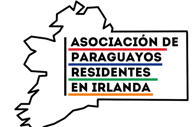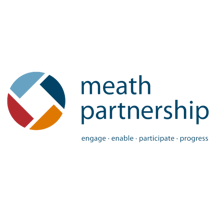
A general informative guide to advantages and challenges.
Working in Ireland. Guide created by APRI.
Working in Ireland, can be a great learning experience and is a great step when settling in a new country, therefore we want to help you with tips and information, overview of working in Ireland, keep in mind that you should always be proactive and always try to inform yourself in more than one source. The opportunities may be various and taking into account that Ireland is currently an economy with good development in general and with its areas in more demand, but not everything is rosy, the first job, always brings its challenges, and everything will depend on your way of facing them. Below are the steps that in our opinion are relevant to your path to your first job.
Más información
Live in Ireland
Consular alliances


TABLE OF CONTENTS
Introduction


...
Requirements to work in Ireland.
Due to Ireland's economic growth and labor shortage, the country is opening its doors to non-EU citizens seeking work opportunities. While Ireland is part of the European Union, there are regulations and requirements in place. Here's a breakdown of ways to work in Ireland:
EU Citizens:
Don't require a visa or work permit to work in Ireland.
Non-EU Citizens:
Need a visa and a work permit to work in Ireland.
Types of Visas:
Student Visa with Work Permit: Allows part-time work while studying.
Work Visa: Sponsored by an Irish employer.
Working Holiday Visa: (Paraguay is not currently a participant, but other South American countries like Argentina and Chile are. If you have dual citizenship, check if your other country participates.)
Student Visa with Work Permit:
Study Requirements:
Student visa obtained through the school
Enrollment in a recognized institution
Proof of sufficient financial resources
Health insurance
Work Requirements:
Work permit obtained through the employer
PPSN (Personal Public Service Number)
How to Apply for a Work Permit:
Apply online once you're in Ireland.
Create a MyGovId account (available on their website).
Provide proof of residence (utility bill or similar)
Scan of your passport
Evidence of needing a PPS Number (signed document with company letterhead stating employment purpose)
Website of the Irish Department of Justice:
Irish Department of Justice: https://www.gov.ie/en/organisation/department-of-justice/
Work Visa:
Work visas are issued based on an agreement between an employer and employee. The employer essentially sponsors you by demonstrating your necessity for the position. After a certain period (currently two years, but subject to change), you may be eligible to apply for residency, which requires periodic renewal.
Critical Skills in Ireland:
Information and Communications Technology (ICT)
Engineering and Construction
Manufacturing
Life Sciences
Financial Services
Food and Beverage
Tourism, Hospitality, and Catering
Nursing and Elderly Care
General Requirements:
Job offer from an Irish employer
Relevant qualifications and experience for the position
English language proficiency (IELTS 5.5 or equivalent)
Further Resources:
Irish Immigration Service: https://www.irishimmigration.ie/
Indeed Ireland Jobs: https://www.indeed.ie/
Note: I've omitted the original website links to adhere to formatting guidelines. You can find them by searching the bracketed keywords on Google.
I hope this revised translation is accurate and helpful!
High Demand Sectors.
High Job Demand in Dublin, Limerick, and Cork:
Dublin:
Hospitality: A sector with constant demand, especially during peak season.
Cleaning: Cleaning companies are constantly looking for staff.
Elder Care: This job is quite popular in Ireland due to the high number of elderly people who require it.
Distribution Sectors: Logistics, warehouses, packaging, shipping centers.
Pubs: Waiters, bartenders.
Baristas in Cafes:
Bachelor's Degree in Hotels or Restaurants:
Technology: In high demand (center of major tech companies). Software engineers, web developers, data analysts, cybersecurity specialists.
Construction: Painting, carpentry, and others.
Finance: Financial analysts, financial advisors, accountants, banking specialists.
Engineering: Civil, mechanical, electrical, biomedical engineers.
Healthcare: Doctors, nurses, pharmacists, physiotherapists.
Limerick:
Manufacturing: Production engineers, maintenance technicians, machine operators.
Food & Beverage: Quality technicians, production supervisors, plant operators.
Information Technology: Software engineers, web developers, data analysts.
Tourism: Hospitality, tour guides, customer service personnel.
Cleaning: Cleaning companies are constantly looking for staff.
Elder Care: This job is quite popular in Ireland due to the high number of elderly people who require it.
Distribution Sectors: Logistics, warehouses, packaging, shipping centers.
Pubs: Waiters, bartenders.
Baristas in Cafes:
Bachelor's Degree in Hotels or Restaurants:
Cork:
Hospitality: A sector with constant demand, especially during peak season.
Cleaning: Cleaning companies are constantly looking for staff.
Elder Care: This job is quite popular in Ireland due to the high number of elderly people who require it.
Distribution Sectors: Logistics, warehouses, packaging, shipping centers.
Pubs: Waiters, bartenders.
Baristas in Cafes:
Bachelor's Degree in Hotels or Restaurants:
Pharmaceuticals: Laboratory technicians, production engineers.
Information Technology: Software engineers, web developers, data analysts.
Financial Services: Financial analysts, financial advisors, accountants.
Agriculture: Agricultural engineers, veterinarians, agricultural technicians.
Note: This list is not exhaustive and may vary depending on the city and time of year. It's recommended to thoroughly research job offerings in your desired cities before moving to Ireland.
Job Search in Ireland:
Traditional Methods:
Employment Agencies: The most common way to find a job in Ireland.
Facebook and WhatsApp Communities: Not as safe as agencies, but can be useful.
Finding Reliable Agencies:
National Recruitment Federation (NRF): Sets best practices in the recruitment sector.
Website: https://nrf.ie/online-programme-in-recruitment-practice/
Tips to Avoid Scams (Applies to Online Communities and Agencies):
Research the agency: Look for online information, reviews, and testimonials.
Request information: Ask for details about their services, fees, and processes.
Avoid upfront payments: Be wary of agencies that demand payment before finding you a job.
Trust your instincts: If something doesn't feel right, look for another agency.
Remember:
Employment agencies do not guarantee a job, but they can increase your chances.
Be proactive and continue your job search through other means.
Online Job Search:
There are many online job portals in Ireland.
Some popular options:
You can also search for jobs that require Spanish speakers, e.g.: https://www.irishjobs.ie/jobs/spanish
Searching by Sector:
Health: www.irishjobs.ie/Nursing-Jobs www.nursejobsireland.com/ www.hse.ie/eng/staff/Jobs/ www.healthcarejobs.ie/ www.healthcarejobs.ie/jobs/nursing/ www.hse.ie/eng/staff/Jobs/Job_Search/
Education: www.educationcareers.ie/ www.careerjet.ie/teacher-jobs.html
Hotel Area: www.noel.ie www.jobs.ie/hotels_jobs.aspx www.irishjobs.ie/Jobs/Hotel-Catering/ www.ihf.ie/jobs
Employment Rights in Ireland.
Student Visa (Work and Study):
Allows part-time work while studying in Ireland.
Working hours:
20 hours per week during the academic term.
40 hours per week during holidays.
Full-time work allowed during holiday seasons:
May to August.
December 15th to January 15th.
Work Visa or European Passport:
Allows full-time work in Ireland.
General Rules (Full-time and Part-time):
The standard work week in Ireland is 40 hours.
The maximum daily working time is 8 hours, with a 15-minute break after every 4.5 hours of work.
Most employees are entitled to a 30-minute lunch break.
Overtime is paid at a premium rate.
Holidays:
Employees are entitled to a minimum of 4 weeks of paid holidays per year.
Part-time employees are entitled to 8% of their worked hours as holidays.
Holidays can be taken in one or more periods.
Employees are also entitled to 9 paid public holidays per year.
Examples:
A full-time employee (40 hours per week) is entitled to 20 days of paid holidays per year.
A part-time employee (20 hours per week) is entitled to 10 days of paid holidays per year.
Important Notes:
Holiday rights may vary depending on the employment contract.
Some employees may be entitled to more than 4 weeks of paid holidays per year.
Employees must give their employer reasonable notice of their holiday plans.
For More Information:
Website of the Department of Enterprise, Trade and Employment: https://enterprise.gov.ie/en/
Workplace Relations Commission: https://www.workplacerelations.ie/en/
Minimum Wage:
Same as the national minimum wage (€11.30 per hour as of January 2024).
Remember that living costs also increase. It may seem high compared to Paraguay, but costs are also higher. However, in general, it is possible to live well with a reasonable and economically sound lifestyle.
Rates as of January 2024.
Age group , Minimum hourly wage and % of minimum wage
20 and over- 12,7€ - 100%
19 - 11,43€- 90%
18 - 10,16 - €80%
Less than 18 years old 8,89€ 70%
Rights:
Same right to fair and safe working conditions.
Equal opportunities and non-discrimination.
Protection against unfair dismissal.
Social Security Number (PPSN):
A requirement for working in Ireland.
By working legally, you pay taxes.
The system offers support and tax management.
When you register in the system, I recommend reading and researching about it on the government website.
This is the government's social number system (MyGovId).
Additional Information:
You can find more information about employment rights in Ireland on the following websites:
Citizens Information: https://www.citizensinformation.ie/en/employment/
The Irish Human Rights and Equality Commission: https://www.ihrec.ie/
The Equality Authority: [se quitó una URL no válida]
It is important to know your rights as an employee in Ireland. If you have any questions or concerns, you should contact your employer or a relevant trade union.
info@paraguayosenirlanda.ie


Relationship with:
Web develop and content: Lucas Grisetti








